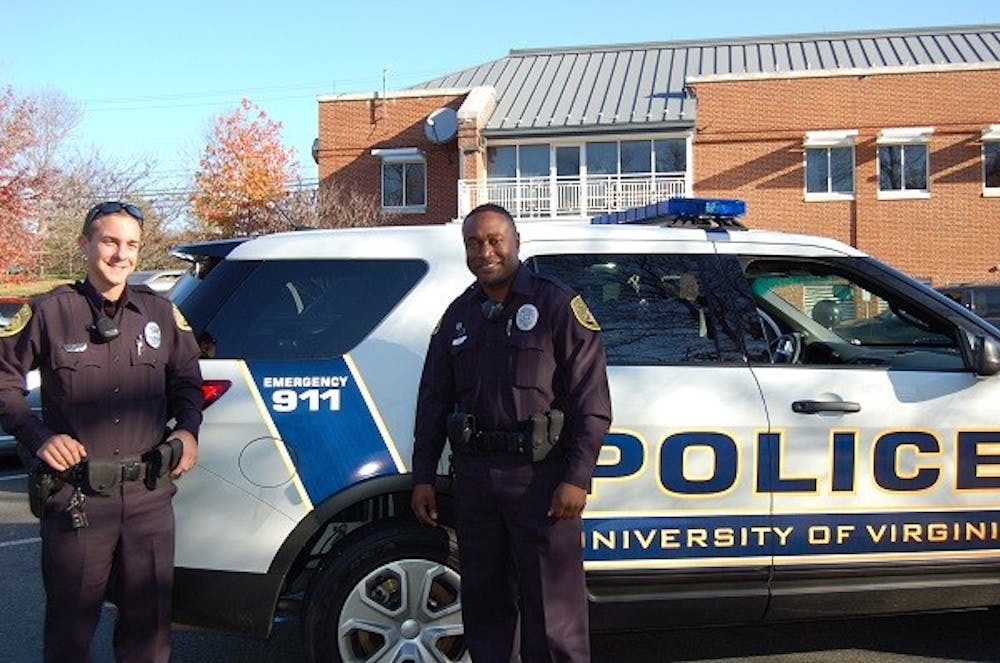On and around Grounds, students receive protection from both the University Police Department and the Charlottesville Police Department and guidance from the University Ambassadors.
The primary difference between the UPD and CPD are the bounds of their authority — the UPD patrols the areas owned and operated by the University while the CPD covers the entire city of Charlottesville.
“We are a police department just like any other police department — we have badges and can make an arrest and conduct investigations,” Benjamin Rexrode, Crime Prevention Coordinator for the UPD, said.
However, Rexrode said the UPD officers do their jobs a bit differently because of their “unique” environment. The department deals primarily with young people, and the University’s campus is located in both the city and county.
“A lot of people don’t know that pretty much all of Central Grounds is in the county of Albemarle, but the whole health system, which we also cover, is in the city of Charlottesville,” Rexrode said. “So we’re essentially the same in terms of authority and arrest powers, but we sometimes have a different mission or how we go about our job just because of the environment that we work in.”
In addition to both police departments, students can also rely on members of the University Ambassadors program, located on the Corner and other popular off-Grounds locations, to keep them safe when they aren’t on Grounds. Rexrode said the main element of their program is “high visibility, high engagement.”
“The Ambassadors are affiliated with U.Va., they are contracted through the University to be a safety resource in off-Grounds areas.” Rexrode said. “They don’t have police authority or security authority, but they’re there as a visible, responsible party. We train them on how to recognize potentially unsafe situations, how to assess if someone needs medical help or if someone is in crisis and then they immediately contact us.”
Students can identify Ambassadors as people wearing a bright yellow shirt with the word “Ambassador” printed in large, bold font on the back.
Lt. Steve Upman, the Forensic and Technical Units Bureau Commander with the CPD, said that when students come in contact with authority figures, honesty is the most important factor.
“Sometimes we come into contact with students who have gotten themselves in a situation, and they do not want to be forthcoming about what happened,” Upman said. “We would ask that all students put their safety first, be honest about what happened and let us try and help them through the situation. Many times, a student can face a more difficult set of circumstances by not being honest with our officers.”
Students should also be aware that the UPD and CPD are not exclusively available for emergency situations.
“Calling 911 is not just for the dire emergencies, it can be for a lot less than that,” Rexrode said. “It can just be that you’re in a situation that doesn’t seem right, that’s a situation for you to dial 911 too. We don’t want students to feel like they’re wasting our time, if it’s a concern to them then it’s a concern to us. We are here to serve you.”







